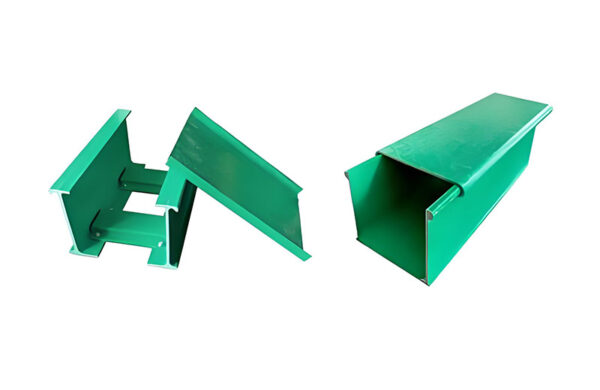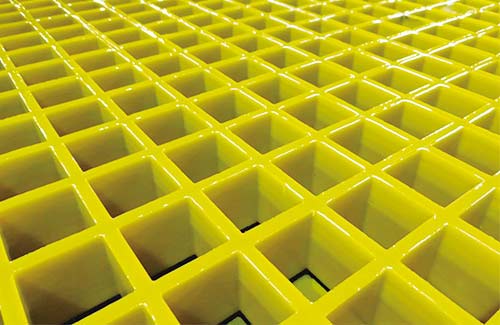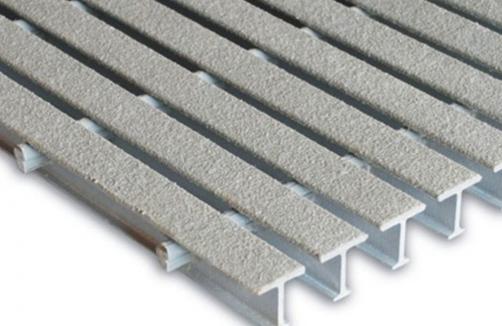Nei settori dell'edilizia e dell'industria, la domanda di materiali funzionali e personalizzabili è cresciuta in modo significativo. I grigliati FRP (Fiber Reinforced Polymer) realizzati su misura rispondono a queste esigenze, combinando i vantaggi dell'FRP con una flessibilità progettuale su misura.
Il grigliato FRP su misura è realizzato integrando fibre di vetro per la resistenza, una matrice di resina come legante e riempitivi per migliorare proprietà come la durezza e la resistenza al fuoco. Il segreto sta nel manipolare questi materiali e il processo di produzione per adattarli ai requisiti specifici del progetto.
Il processo di produzione inizia con la consulenza progettuale. Gli ingegneri lavorano con i clienti per comprendere le esigenze di carico, ambientali ed estetiche, utilizzando il software CAD per creare modelli precisi. La scelta della resina dipende dall'ambiente: vinilestere per aree altamente corrosive, come gli impianti chimici, e poliestere per applicazioni meno corrosive e sensibili ai costi. Il rinforzo in fibra di vetro è personalizzato per la resistenza, con fibre unidirezionali utilizzate in scenari di carico elevato.
I metodi di fabbricazione includono la pultrusione con stampi personalizzati per creare forme uniche per accoppiamenti precisi e tecniche di stampaggio. La laminazione a mano è adatta per articoli complessi o su piccola scala, mentre lo stampaggio a trasferimento di resina assistito da vuoto (VARTM) consente una produzione di alta qualità su larga scala.
Questo tipo di grigliato offre un'eccezionale personalizzazione in termini di dimensioni, colore e finitura superficiale. Le superfici lisce favoriscono la pulizia nelle industrie alimentari, mentre le superfici grigliate offrono resistenza allo scivolamento in ambienti umidi. Inoltre, ha un elevato rapporto resistenza/peso, essendo fino a quattro volte più leggero dell'acciaio pur mantenendo la resistenza, ideale per ridurre i carichi strutturali.
Grazie all'eccezionale resistenza alla corrosione di acidi, alcali e sali, i grigliati FRP su misura sono perfetti per ambienti difficili come le centrali elettriche costiere. Le sue proprietà non conduttive e non magnetiche lo rendono sicuro per le installazioni elettriche e richiede una manutenzione minima, solo una pulizia occasionale, a differenza dei grigliati metallici che necessitano di una regolare prevenzione della ruggine.
Nelle applicazioni, viene utilizzato per la pavimentazione di stabilimenti chimici, farmaceutici e alimentari, grazie alla resistenza alla corrosione e all'adattamento personalizzato. Serve anche come piattaforma per le apparecchiature, isolando le vibrazioni. In architettura, viene applicato a passerelle, gradini di scale e balaustre, migliorando la sicurezza e l'estetica.
In ambito marino, riduce il peso delle navi e resiste alle condizioni offshore. In agricoltura, viene utilizzato per la pavimentazione delle stalle, resistente ai rifiuti e alle sostanze chimiche. Nei parchi a tema, crea strutture a tema e antiscivolo.
Nel complesso, la personalizzazione, la resistenza e la bassa manutenzione del grigliato in FRP su misura ne fanno una soluzione versatile e conveniente in diversi settori, con un potenziale di ulteriore crescita grazie ai progressi della tecnologia.







